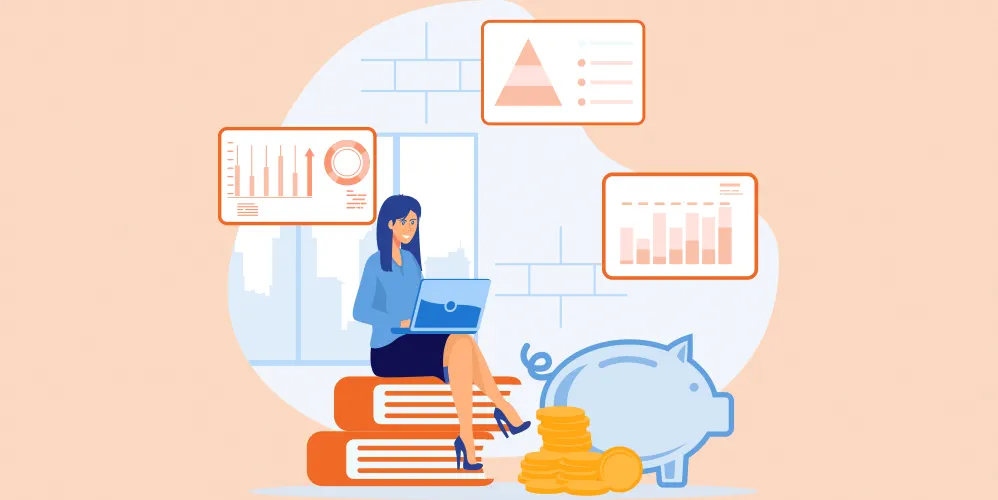
Essential Tax Saving Options and Investments for Salaried Individuals
08 Jan 2025

Table of Content
-
Introduction
-
Understanding the Basics of Income Tax
-
Traditional Tax Saving Options: Section 80C
-
Alternative Tax Saving Investments for Salaried Individuals
-
Maximizing Your Savings: Combining Different Tax Saving Options
-
Investment Tips for Long-Term Wealth Creation and Tax Benefits
-
Common Mistakes to Avoid While Investing for Tax Savings
-
Conclusion: Taking Advantage of All Available Options and Optimizing Your Income
Introduction
As the financial year draws to a close, salaried individuals often find themselves in a rush to optimize their tax savings. Understanding various tax-saving options can significantly reduce your tax liability while also helping you build wealth over time. This blog will explore essential tax-saving investments and strategies tailored for salaried individuals.
Understanding the Basics of Income Tax
Before diving into tax-saving options, it’s crucial to understand the basics of income tax. The income earned by individuals is taxed based on tax slabs determined by the government. Salaried individuals often have tax deducted at source (TDS) from their salaries.
Traditional Tax Saving Options: Section 80C
One of the most popular ways to save tax is under Section 80C of the Income Tax Act. This section allows you to claim deductions of up to ₹1.5 lakh per financial year on various investments, including:
• Public Provident Fund (PPF) :
A government-backed savings scheme with attractive interest rates and tax benefits.
• Employee Provident Fund (EPF) :
Contributions made to EPF are eligible for tax deductions.
• Equity Linked Savings Scheme (ELSS) :
These are mutual funds that invest primarily in equities and have a lock-in period of three years.
• Life Insurance Premiums :
Premiums paid for life insurance policies can also be claimed under this section.
While these options are traditional favourites, it’s wise to explore alternatives to diversify your investment portfolio.
Alternative Tax Saving Investments for Salaried Individuals
Besides Section 80C, there are other effective tax-saving options:
• National Pension System (NPS)
NPS is a retirement savings scheme that offers additional tax benefits under Section 80CCD. Contributions up to ₹50,000 made to National Pension System (NPS) are eligible for tax deductions, over and above the ₹1.5 lakh limit of Section 80C. It encourages long-term savings for retirement while providing attractive investment options.
• Health Insurance Premiums
Under Section 80D, you can claim deductions on premiums paid for health insurance for yourself, your spouse, children, and parents. The maximum deduction allowed is ₹25,000 (or ₹50,000 for senior citizens), promoting health and financial security.
• Home Loan Interest
If you have taken a home loan, you can claim deductions on the interest paid under Section 24(b), up to ₹2 lakh per year. This can be a substantial tax-saving option for homeowners.
Also Read: What is Form 16 in Income Tax?
Maximizing Your Savings: Combining Different Tax Saving Options
Combining different tax-saving options can help you maximize your savings. For instance, you can invest in ELSS for the long-term while also contributing to NPS for retirement. Additionally, consider making health insurance payments and leveraging home loan deductions to optimize your tax liability.
Investment Tips for Long-Term Wealth Creation and Tax Benefits
• Start Early :
The earlier you start investing, the more time your money has to grow. This can be especially beneficial with long-term instruments like PPF and ELSS.
• Diversify Your Investments :
Don’t put all your eggs in one basket. Diversifying across different asset classes can mitigate risks and enhance returns.
• Monitor Your Investments :
Regularly review your investments to ensure they align with your financial goals and risk appetite.
Common Mistakes to Avoid While Investing for Tax Savings
While planning your tax-saving investments, be mindful of these common pitfalls:
• Rushing at Year-End :
Avoid waiting until the last moment to invest. Planning throughout the year can provide more options and better returns.
• Ignoring Risk Profiles :
Ensure your investments align with your risk tolerance. Avoid investing in high-risk instruments if you’re risk averse.
• Not Keeping Track of Deductions :
Stay organized and keep track of all eligible expenses to ensure you don’t miss out on potential deductions.
Conclusion: Taking Advantage of All Available Options and Optimizing Your Income
In conclusion, understanding and leveraging various tax-saving options can significantly impact your finances. Salaried individuals should explore traditional and alternative investments, combining them effectively to maximize savings. By making informed decisions and avoiding common mistakes, you can enhance your financial future while minimizing tax liability. Remember, tax planning is an ongoing process, so keep reviewing your strategies to optimize your income continuously.
Also Read: 5 Investments to SAVE TAX
Popular Articles
Tag Clouds
Related Articles








What Is Joint Account? - Meaning, Benefits, Application Process & How its Work


-
Disclaimer
The contents of this article/infographic/picture/video are meant solely for information purposes and do not necessarily reflect the views of Bank of Baroda. The contents are generic in nature and for informational purposes only. It is not a substitute for specific advice in your own circumstances. Bank of Baroda and/ or its Affiliates and its subsidiaries make no representation as to the accuracy; completeness or reliability of any information contained herein or otherwise provided and hereby disclaim any liability with regard to the same. The information is subject to updation, completion, revision, verification and amendment and the same may change materially. The information is not intended for distribution or use by any person in any jurisdiction where such distribution or use would be contrary to law or regulation or would subject Bank of Baroda or its affiliates to any licensing or registration requirements. Bank of Baroda shall not be responsible for any direct/indirect loss or liability incurred by the reader for taking any financial decisions based on the contents and information mentioned. Please consult your financial advisor before making any financial decision.
Filling Out a Cheque: Tips and Tricks for Secure Payments
Even in today’s digital world, cheque books remain a trusted and secure method for many financial transactions. Understanding how to fill out a cheque correctly is important for ensuring payments are processed smoothly and without error. In this guide, we’ll take you through the steps for filling out a cheque, provide useful tips to avoid common mistakes, and suggest alternative payment methods.
Financial Literacy: Tips for Teens and Parents
Financial literacy is a crucial life skill, and starting young can set teens on a path to financial success. Understanding money management, savings, and investments early on helps teens make informed decisions, cultivate healthy financial habits, and achieve long-term financial goals. This blog explores the importance of financial literacy for teens, provides tips for early savings habits, and highlights Bank of Baroda's offerings for young savers.

